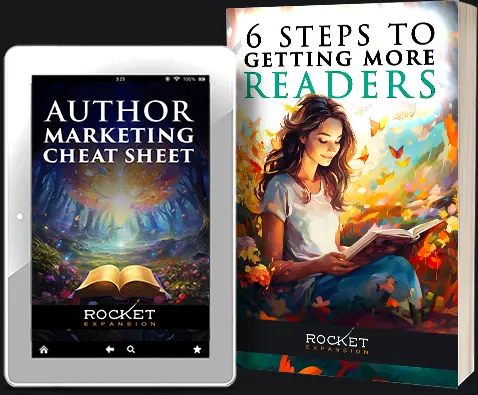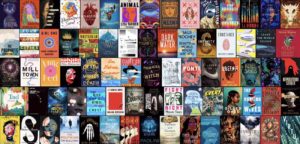Finding the Perfect Literary Agent For Your Book

Is your book finally ready to be published?
If you think your book has what it takes to catch the eye of one of the big publishing houses, you need a literary agent.
Most big publishers won’t even look in your direction if you don’t have representation. And getting a literary agent isn’t easy in the slightest.
But don’t worry, we’ve compiled everything you need to know from what they do, where to find them, and how to pick the right one for you.
What is a Literary Agent?
A literary agent is an author’s lifelong career manager, and getting one is the first step you need to take if you want to be traditionally published.
They have immense knowledge of the business side of publishing, plus a creative streak to help improve your manuscript. This makes them the perfect intermediaries because they understand what publishers and authors want.
What Does a Literary Agent Do?
Literary agents are there to take the business side of writing off your shoulders so you can focus on what matters: writing novels. Here’s what they can do for you:
- Negotiate book deals and other contracts and protect your rights.
- Provide insights and advice on your current manuscript and new ideas.
- Help with crafting high-quality query letters, book proposals, etc.
- Edit your manuscript for pacing, plot development, character development, grammar, spelling errors, etc.
- Find suitable editors for your manuscript.
- Be the line of communication between you and the publisher.
- Find more opportunities and deals that market your author brand, like speaking engagements, book signings, etc.
Do You Need A Literary Agent?
If you dream of having your name under one of the Big 4 Publishers, you must have an agent. However, you won’t need one if your novel is on a niche topic like “how to train a dolphin.”
Remember that both publishers and literary agents are taking a risk on your book, so it needs to pay out for them. Unfortunately, a dolphin training manual won’t bring in the big bucks.
If you’re still keen on finding a literary agent, check out this list of genres that usually receive representation:
- Romance
- Mystery
- Thriller
- Children’s
- Sci-Fi
- Fantasy
- Memoir
- Young Adult
- Mainstream nonfiction
And here’s a list of genres that don’t usually receive representation:
- Poetry
- Experimental works
- Flash fiction
- Non-commercial nonfiction
Alternatively, if your manuscript fits into the indie publishing scene, you could either self-publish or approach smaller publishers who don’t require you to have a literary agent.
The Good And Bad Of Having A Literary Agent
If you think your book has the potential to be a major success, it doesn’t mean you have to get a literary agent. The publishing industry has been shifting for years now, and it’s getting easier and easier to publish a book on your own or seek out a smaller publisher that admires niche topics.
So, take a look at the pros and cons below so you can decide whether going through the effort of getting a literary agent is worth it:
The good:
- Foot in the door: Most medium to big publishers will only consider your manuscript if you’re represented by a literary agent.
- Less headaches for you: You don’t have to worry about keeping track of the business side of writing, for example, negotiation, logistics, publicity, marketing ideas, etc.
- Expert negotiators: They can get you a better deal with more rights and royalties.
- Career guidance: They’ll always have an eye on the bigger picture when it comes to your career.
- Trustworthy Confidant: You’ll have someone you can go to for solid advice.
- Paid when it’s done: They only get paid once they sell your manuscript.
The bad:
- Sharing a piece of the pie: They take 10-15% of commission from your royalties and advance. If you’re publishing internationally it will increase from 20% onwards.
- Delay before being published: You must pitch your manuscript to your agent, they pitch it and negotiate it with a publisher, and then an editor will be brought in for more edits, and so on. With self-publishing, you can move through the process quickly.
- Not always trustworthy: You must verify that potential literary agents are registered with the AAR (Association of Authors’ Representatives) but even after that, you have to make sure they’re a good fit for you. Their advice may not be appropriate to your circumstances.
How To Find A Literary Agent
Very few new authors are lucky enough to be found by literary agents, so you have to go looking for them.
Follow these steps and you should find the literary agent of your dreams.
Work on Your Manuscript
Before you take to the internet to find a literary agent, you need to start with your manuscript. If you already have an editor, then you probably have all the steps taken care of before searching for an agent.
But if you’re a first-time author, you need to get your manuscript, and your understanding of it, in order. Here’s a checklist:
- Fix spelling errors and grammar issues.
- Make sure all the pages are numbered.
- Remove spaces between paragraphs.
- Identify your genres and subgenres. This will make it easy to pitch your book to the right agent.
- Identify similar books to yours. This will help you find an agent – more on this below!
Figuring out the above will help you see where your book fits in the publishing industry. For example, is it mainstream? Or is it a niche topic?
Most items above won’t apply if you’re writing a non-fiction book.
Fiction writers will have to keep reworking their manuscript until it’s at the best place possible, while non-fiction writers will need a book proposal. This will give the literary agent an overview of your idea and allow them to hear your voice.
This is because for fiction, the marketability of the story matters the most, and in non-fiction, your marketability and author platform are the most important.
Note: Draft a book synopsis or back of the book description to lay out what the book is about. Preparing these will not only provide you with a succinct pitch but will also help you find potential plot holes for you to fix.
Where to Find Literary Agents
The more the merrier doesn’t apply to compiling a list of literary agents.
It may be tempting to run headfirst into Google and copy the emails of any literary agent that says they’re available for a new manuscript. But this will lower your chances of finding a literary agent that will want to represent you.
You can create a list of about 100 literary agents, but they all need to be interested in your type of manuscript, otherwise, you’re wasting your time and the literary agent’s inbox space.
Literary agents have preferences, and if your manuscript doesn’t fall under them they probably won’t even read it. To determine if your manuscript fits their preference, research their current clients, sales records, online profiles, and the types of manuscripts they view.
Now, you’re ready to run headfirst into the internet with our permission. You can find literary agents in the following locations:
- Acknowledgments Pages: Pick similar books to yours and look for where the author thanks their agent. These literary agents will most likely be interested in representing work like yours.
- Social media: Twitter in particular is a great place to find literary agents. You can use the hashtag #MSWL (Manuscript Wish List) (link) to find what agents are looking for and use hashtags like #pitdark, #PBpitch, or #LGBTNpit to submit a short pitch to literary agents on Twitter.
- Literary Agent portals: Below are some handy websites that you can search through to find or verify literary agents, but some of these require you to subscribe for a fee:
Top Tip: We suggest sending out a handful of submissions at a time and sending off 1 after receiving a ‘no.’
Create Your Submission Package
The list of literary agents is set and you’re ready to send off your manuscript. To give your book the best chance at intriguing a literary agent, you need to send a submission package that ticks all the boxes.
Usually, each literary agent will provide a list of requirements for what they want. The list should include the following items:
- Query letter: It’s like a cover letter that you would send for a job application; we’ll go through query letters below.
- Summary of your plot: This is your book synopsis or back of book description – you can give away your ending here.
- Book proposal: A 10–25-page document that proves that the book idea and author bringing it to life will be commercially viable.
- Sample chapters: For non-fiction send 2 of your best Chapters, and for fiction send the first 50 pages of your manuscript.
Top Tip: Be sure to do plenty of research for each literary agent you’re sending your submission to. Use this research to personalize each document. This will be the literary agent’s first impression of you.
What goes into a query letter
A query letter should reveal the following:
- Your book’s elevator pitch.
- The book’s genre.
- The target readers for this book (if you write non-fiction).
- Similar books to yours.
- What makes your book unique; why does it have the potential to be a commercial success? (In the case of non-fiction).
- Any relevant details about you like past accomplishments (creative writing course, writing competitions, qualifications, etc.)
- Your social media handles.
Make sure your voice comes through in your query letter, so the literary agent gets a feel for who you are and what you’re capable of.
Because no matter how brilliant your manuscript is, only a few agents will feel passionate about representing it. Ensure the passion is not missing on your end so you can find your match.
Top Tip: Document who you’ve sent your manuscript to and what their responses were so you can keep track of who you’ve already received responses from.
How To Pick the Ideal Literary Agent
Just like literary agents will have criteria for accepting manuscript submissions, you should have criteria for them too.
You may have your own criteria for your circumstances, but make sure the agent passes the below requirements:
Good communication
We all have different preferences for communicating. For example, you may roll your eyes when someone calls instead of texts.
But regardless of whether the literary agent calls or texts, it should be professional, timely, clear, and direct.
The lines of communication between both of you should be open and easy, i.e. you should never be left out of the loop.
Track Record
What an agent has done in the past can impact whether they are the most suitable option for you. A literary agent’s track record can be:
- What type of manuscripts have they sold and are they similar to yours?
- What type of clients have they represented and are they similar to you?
- What arrangements of royalties and advances have their clients gotten and does that suit your expectations?
- Which publishers have they worked with, and do they suit your manuscript?
You can use the information you’ve found online to help you choose both who to send your manuscript submission to and who to pick if you’re lucky enough to have multiple agents interested in representing you.
Experience
Depending on your book and your ideas for future books, you may need an agent with ample experience in your genre. In that case, you may opt for a literary agent with many years of experience.
If experience isn’t that big of a concern for you right now, a newer agent will be just fine (as long as they are reputable).
Enthusiasm
The literary agent should feel excited about working on your manuscript because they believe it is worth pursuing. When deciding which literary agent to partner with, you should feel they are almost as committed to selling your book as you are.
Another aspect to note is, that where an agent may lack experience, they can make up for it with enthusiasm. Unless you’re going for a massive deal with one of the big 4 publishing houses, you should be fine picking a newer literary agent.
A newer agent will be eager to grow in the business and therefore eager to get your book sold.
Agent style
You need to have an idea of how the literary agent operates to know if they will benefit your career.
Do a bit more research to find answers to the following questions:
- What work does the agent do for their clients?
- How do they approach book publication?
- How do they approach negotiations?
- How rigid is their feedback? Are they open to discussing the edits they’ve suggested?
Dealing with responses from Literary Agents.
We spoke very positively about you potentially having multiple agents to pick from…so we wanted to bring you back down to Earth.
These are the possible responses you may receive after sending off your manuscript:
The ‘Yes’
How exhilarating! A literary agent told you that your manuscript is the one for them!
We’re paraphrasing here, but the bottom line is you’ve got yourself a literary agent.
Keep in contact with your new agent and work together to improve your manuscript, because the journey to a published book is only on the second step – you still have to keep climbing.
Your agent may suggest you work on your online presence, with an author website, to help improve your platform in the eyes of the publishing houses, for example.
You can also contact the other agents to let them know you’ve found a literary agent to represent you.
The Ghost
Your manuscript may have fallen into the depths of their inbox, or maybe they’re just too busy to tell you no.
But if you haven’t received any response, you’ve been ghosted. There are plenty more fish in the sea, so recast your line and keep going.
The ‘Maybe’
Maybe is better than no.
A literary agent may reply with an R&R – which means Revise and Resubmit. This means you need to make some edits for them to consider accepting your manuscript. You can work with this, but it doesn’t mean you have to.
You may not like the direction your story will take with these edits, and that could mean this is not the agent for you.
In the same way, if you do like the edit suggestions, they still may refuse your manuscript afterward.
The Flat ‘No’
A literary agent may give you a flat-out rejection.
You may have the urge to tell them how rude they are, but keep in mind that this is not personal. They don’t want to waste your time (or theirs). A rude reply from you could land you on a blacklist.
So, get a tub of ice cream to console yourself, and then get back up and try again.
The Polite ‘No’
Some literary agents have the time to get back to you with actual criticisms that can help you understand why they decided against working with you. This may make the ‘No’ easier to swallow, or it can give you something to improve upon for future submissions.
The Green-Eyed Epiphany
You know the romance trope where a character only realizes they love someone when that person is in a relationship?
This applies to some agents too.
A literary agent who’s heard your manuscript has been accepted may swoop in to let you know they’re interested after all. Some agents are big enough that they only show interest once they know others have approved of your book.
We suggest you take a beat to evaluate your options. This person may be with you till the end of your career. Go through your criteria again and see which literary agent suits you best.
Mistakes to avoid when finding a literary agent.
Lastly, we’re going to leave you with some sage advice on what common pitfalls you need to steer clear of when looking for a literary agent:
- The wrong person: Make sure you start your submission addressing the correct agent and organization.
- Let’s eat Grandma: Rid your entire submission of typos and grammar problems because it comes off as unprofessional.
- Double-check the address: Ensure you send your manuscript to the correct agent.
- Skipping the research: It can seem long and tiresome, but doing your research can be the difference between getting published and having your manuscript gather dust in your attic.
- Reacting poorly: Don’t get mean when responding to your rejections, as they could tell other literary agents to throw your submissions in the garbage.
- Paying before the deal: If a literary agent asks you to pay before they’ve sold your manuscript, it’s a red flag! They’re probably not legitimate.
What’s Next For You?
We have to be honest, even if you follow the steps above, there’s no guarantee that you’ll find your literary agent without any hiccups.
There’ll be a lot of rejections and you may feel hopeless at times. But if you truly believe in your book, you have to get up, dust yourself off, and keep at it.
Or maybe another path may open up for you…you truly never know! The journey ahead is long and hard. But one day you’ll see your novel on a bookshelf, and it will all have been worth it.
But to ensure your book is a success, you’ll need to promote it. And any literary agent and successful author will tell you that you need an author website.
If you want a professional website that fits your brand perfectly, fill in this inquiry form and we’ll see how we can help your author career soar online.

Want help with your author marketing? Get our FREE ebook and cheat sheet: 6 Steps To Getting More Readers.
By subscribing, you agree to get emails from me, Matt Ziranek. I’ll respect your privacy and you can unsubscribe any time.






